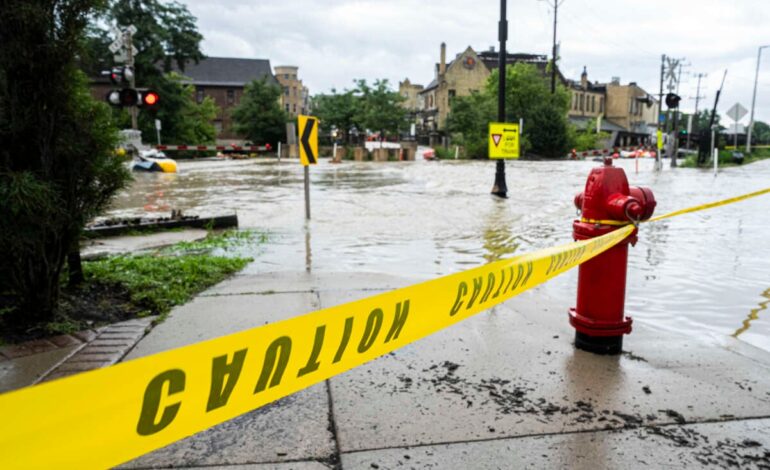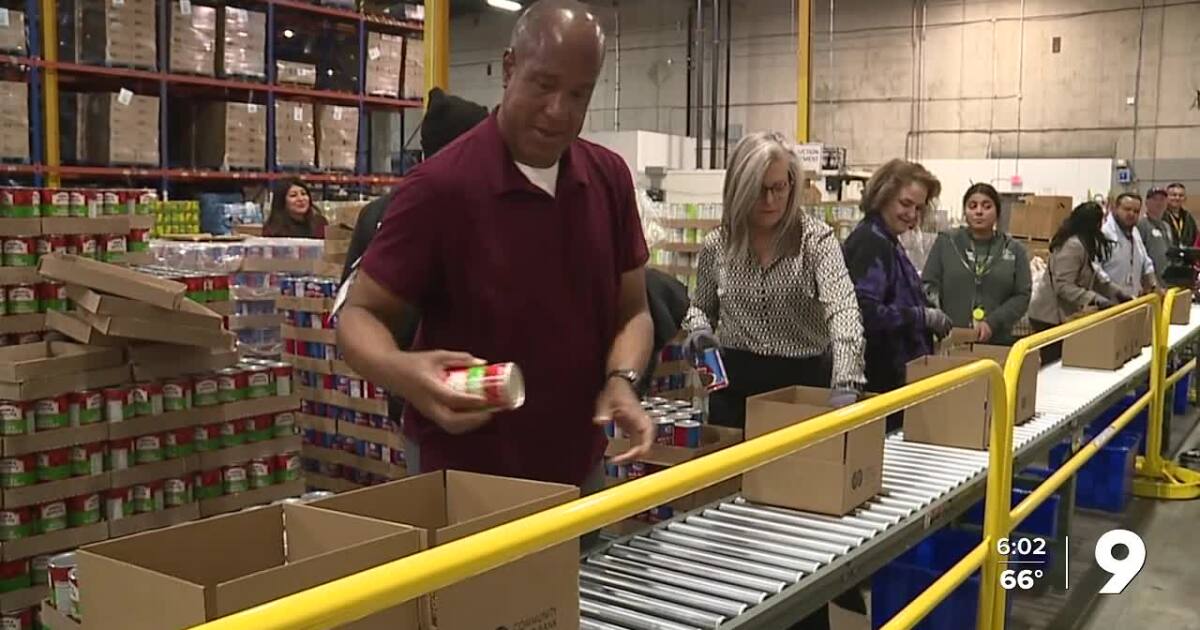Wisconsin Youth File Urgent Lawsuit Over Climate Change Impact

UPDATE: Over a dozen youth from Wisconsin, including Indigenous representatives, have filed a groundbreaking lawsuit against the state’s Public Service Commission, demanding it consider climate change impacts in fossil fuel project evaluations. This urgent legal action comes in the wake of devastating flooding that struck southeastern Wisconsin on August 9-10, 2023, where over 13 inches of rain fell, displacing more than 1,800 homes in Milwaukee.
The catastrophic storm has been described as a 1,000-year flood, underscoring the escalating frequency and intensity of extreme weather events linked to climate change. Miahlin B., a twelve-year-old plaintiff known by her tribal name Waazakone, emphasizes the lawsuit’s significance, stating, “We need the government to understand that clean water and air is a human right and our most valuable resource.”
Currently, Wisconsin law prevents the Public Service Commission from considering air pollution, including carbon dioxide emissions, during the permitting process for new energy projects. This legal gap allows fossil fuel dependency to persist, with approximately 75% of Wisconsin’s electricity generated from fossil fuels. The youth plaintiffs are challenging this law, arguing it violates their constitutional rights to life and liberty.
The lawsuit is supported by Midwest Environmental Advocates and Our Children’s Trust, organizations leading a nationwide movement for youth-led climate litigation. The urgency of this case is amplified by a recent precedent set in Montana, where the state Supreme Court affirmed that youth have a constitutional right to a clean and healthful environment.
As flooding recovery costs mount, Wisconsin state leaders are seeking federal assistance, while Waazakone and her peers hope their suit compels authorities to take climate change seriously. “You cannot allow businesses and people to continue to erode our futures,” she asserts.
The plaintiffs, aged between 8 and 17, are vocal about how climate change directly threatens their traditional ways of life. They harvest wild rice, sacred to their communities, but warming temperatures are diminishing successful growth. They tap sugar maple trees for syrup, yet this past year was disappointing due to an unseasonably warm winter.
Legal experts are closely monitoring this case, given its potential implications for environmental policy in Wisconsin and beyond. “It’s essential to address these legal issues now, especially given the rollback of climate action at the federal level,” states Maria Antonia Tigre, director at the Sabin Center for Climate Change at Columbia Law.
As this case unfolds, the implications for young people and the environment could be profound. With support from climate advocates, these youth are standing firm in their demand for action against climate inaction. They are not just fighting for their rights, but for the future of their communities and the planet.
Stay tuned for updates on this developing story as the fight for climate justice intensifies in Wisconsin.





